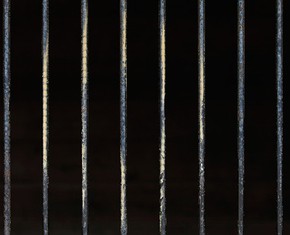The views expressed in our content reflect individual perspectives and do not represent the authoritative views of the Baha'i Faith.
I’ve always held a negative impression of fate, and a more positive one of destiny.
What’s the distinction, you ask? If both fate and destiny mean that things happen through no control of our own, how do they differ? Let’s look at the dictionary definitions:
Fate: the development of events beyond a person’s control, regarded as determined by a supernatural power.
Destiny: the events that will necessarily happen to a particular person or thing in the future.
So with fate, things happen beyond our control—but with destiny, we exert at least some conditional control over our future.
Do you see why I always liked destiny better? I feel much more comfortable knowing that my own actions influence what will happen to me, rather than only broad external forces.
RELATED: Idealist or Realist—Which One are You?
Of course, that’s specious thinking because none of us have control over outside events at all—we only have control over ourselves. So fate is fait accompli, events we’re powerless to stop; and destiny is the ability, however slight, to conditionally mold the future through character and actions.
Do you believe in fate or in destiny?
It seems to me that by these definitions we need to accept both into our lives, with open arms and no fears. The Baha’i teachings define it this way:
Fate is of two kinds: One is irrevocable and the other is conditional, or, as it is said, impending. Irrevocable fate is that which cannot be changed or altered, while conditional fate is that which may or may not occur. Thus, the irrevocable fate for this lamp is that its oil will be burnt and consumed. Its eventual extinction is therefore certain, and it is impossible to change or alter this outcome, for such is its irrevocable fate…
But conditional fate may be likened to this: While some oil yet remains, a strong wind blows and extinguishes the lamp. This fate is conditional. It is expedient to avoid this fate, to guard oneself against it, and to be cautious and prudent. – Abdu’l-Baha, Some Answered Questions, newly revised edition, p. 283.
To follow this analogy, the lamp itself can do nothing other than fulfill its created purpose: to burn oil and keep the flame lit. The oil represents the capacity we are given in this life, not the time we have on Earth.
RELATED: We’re All Made of Stars. What Does This Mean Spiritually?
So—what’s the purpose of a human being on this planet, in this life? Are we here just to burn our oil?
As the purpose of the oil is to enkindle the lamp, so the purpose of our soul is to enkindle our spirit. Just as the lamp gives light to a home, so our lives give light to the world, transcending “the world of material existence:”
Man is intelligent, instinctively and consciously intelligent; nature is not. Man is fortified with memory; nature does not possess it. Man is the discoverer of the mysteries of nature; nature is not conscious of those mysteries herself. It is evident, therefore, that man is dual in aspect: as an animal he is subject to nature, but in his spiritual or conscious being he transcends the world of material existence. His spiritual powers, being nobler and higher, possess virtues of which nature intrinsically has no evidence; therefore, they triumph over natural conditions. These ideal virtues or powers in man surpass or surround nature, comprehend natural laws and phenomena, penetrate the mysteries of the unknown and invisible and bring them forth into the realm of the known and visible.
All the existing arts and sciences were once hidden secrets of nature. By his command and control of nature man took them out of the plane of the invisible and revealed them in the plane of visibility, whereas according to the exigencies of nature these secrets should have remained latent and concealed. According to the exigencies of nature electricity should be a hidden, mysterious power; but the penetrating intellect of man has discovered it, taken it out of the realm of mystery and made it an obedient human servant. In his physical body and its functions man is a captive of nature; for instance, he cannot continue his existence without sleep, an exigency of nature; he must partake of food and drink, which nature demands and requires. But in his spiritual being and intelligence man dominates and controls nature, the ruler of his physical being. – Abdu’l-Baha, The Promulgation of Universal Peace, p. 81.
Human beings have souls. That spirit animates our bodies, and sparks the intelligence that radiates from our minds. Therefore, although our ultimate fate may be decreed, we do have some abilities to challenge it and make a new destiny for ourselves, given the right conditions of awareness and susceptibility.
















Comments
Sign in or create an account
Continue with Googleor